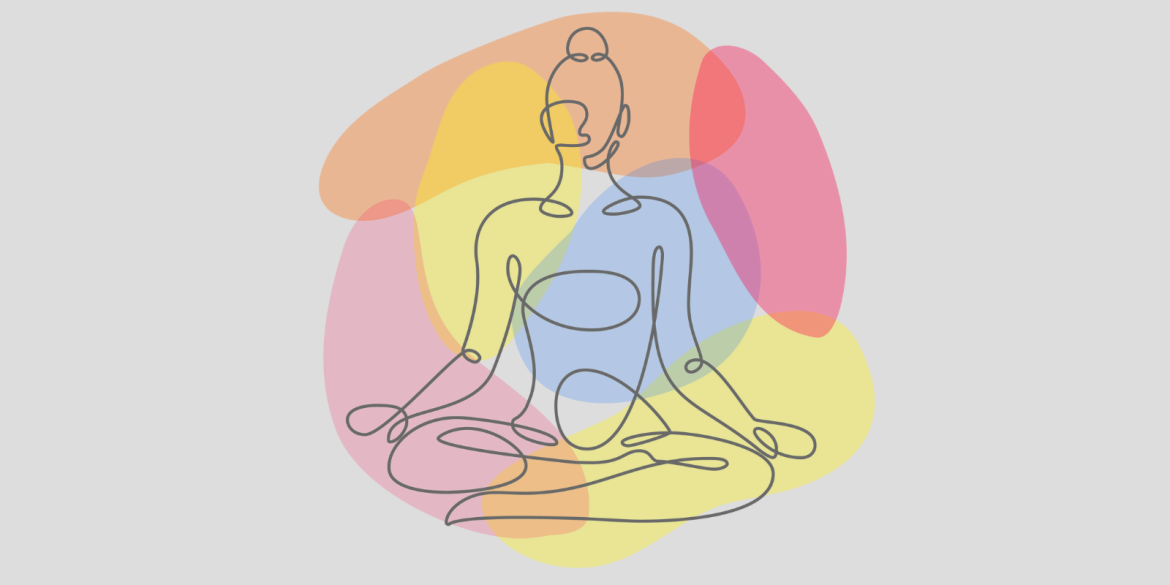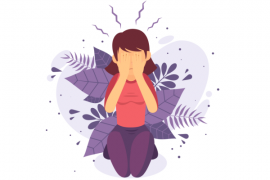By MaryBeth Matzek
Eating healthfully, exercising and having strong social connections are the building blocks of good health. Your mental health is also a crucial component of your wellbeing. Practicing mindfulness and/or meditation fosters positive mental health, can improve stress management and promotes better sleep — along with other benefits — according to the American Heart Association.
Mindfulness is a practice that involves being aware of thoughts, feelings and sensations in the present moment without judgment, which can reduce stress and relax the body and mind. Meditation is the deliberate focusing of attention to bring about feelings of calm and heightened energy and awareness.
Those definitions sound similar but there’s a difference — meditation is a formal practice, while mindfulness is applied to all aspects of life. The two work well together or can be practiced on their own.
“You practice mindfulness by paying attention to small, present moments — like how your coffee tastes or the feel of the wind on your skin,” says Nicole Gorski, owner of HydraSoul, a breathwork and meditation studio.
Gorski turned to mindfulness and meditation “as tools of healing and transformation during a period of deep personal growth.” They helped her “reconnect with my inner self, quiet the mental chaos and access a sense of peace and clarity I had never experienced before.”
Renee Cannizzo of the Shambhala Center of Madison, a meditation center, says meditation and mindfulness can reduce anxiety and stress levels.
“My daily practice has helped me with anxiety and has helped me navigate some mental health issues,” she says.
GETTING STARTED
When starting out, keep it simple. Gorski says to begin your practice with just three to five minutes a day and stay focused on your breath.
“Be gentle with yourself and remember there’s no ‘right’ way to meditate. Meditation is a practice, not a destination, and even small steps can lead to profound changes,” she says.
If your mind or focus begins to wander during those few minutes, don’t worry since that’s common, says Dave Creswell of the Madison Insight Meditation Group. The key is getting back on track.
“Distractions come up and when they do, guide your attention back to your breath,” he says. “Bringing meditative practices into your daily life is mindfulness. The more you do it, the easier it becomes.”
Most people benefit from guided meditation, says Mark Blumenfeld of the Shambhala Center of Madison. Some people start out with an app, but may eventually progress to taking a class.
“It really helps strengthen your practice to do it with others. There’s an important sense of connection,” says Blumenfeld.
Attending a class also allows you to ask questions, such as what to do when your mind wanders. It’s a common question people have.
“Everyone is nervous the first time they come [here] but we’re very welcoming and try to pair a new guest with someone who’s been here before,” Blumenfeld says. “It’s a very supportive atmosphere.”
As for wandering thoughts, he says just circle back to your breathing. “The goal is not about stopping thinking but to make space for that thought, let it go and come back to focusing on your breath. The more you do it, the easier it gets,” Blumenfeld says.
Gorski says letting go of perfection in your mindfulness and meditation practices is essential.
“Meditation isn’t about stopping thoughts — it’s about observing them without attachment. Each time you redirect your focus, you strengthen your practice,” she says.
EXPLORE MORE
Interested in learning more about mindfulness and meditation? Visit these centers online or in person for a deeper dive:
- HydraSoul: hydrasoulwellness.com/madisonstudio.html#
- Madison Insight Meditation Group: madisonmeditation.org
- Shambhala Center of Madison: madison.shambhala.org
The Madison-based Center for Healthy Minds offers the free Healthy Minds Program app to help people learn the skills to “thrive and flourish,” according to its website. Learn more at hminnovations.org/meditation-app.




